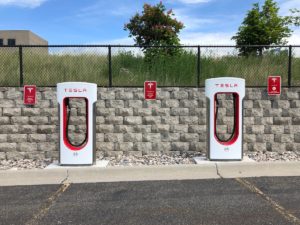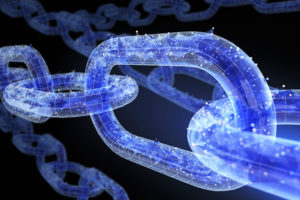Menu
Just Transition Insights, Issue #13, 04/10/2023
By Jonathan Tasini
|

Leading Off: This Grocery Bag Is Missing A Staple
We’re going a bit deeper here, and highlighting for our newsletter subscribers, a recent blog post because it’s crucial to understand a dynamic at play whenever we think of Just Transition.
There are two levels of debate to pay attention to: one that is really a conversation between national leaders about the terms of economic competition, and the other one is amongst unions and workers who are trying to fashion a plausible path to income security on a decarbonized planet.
In our blog post, we touched on the tit-for-tat flying across the Atlantic between the members of the European Union and the United States over subsidies offered by the U.S. in the Inflation Reduction Act, which would favor “Made-in-America” products.
Out of the scrum has risen an idea to create a “buyers club” between the U.S. and Europe (via Wall Street Journal subscription):
U.S. and European officials are discussing how to set up a new group of allies that cooperate on procuring minerals used in clean-energy technologies, hoping to rely less on China while patching up a rift over U.S. subsidies for electric vehicles. [emphasis in bold added]
Indeed, a driving force behind the subsidy rules isn’t just climate change but the rapidly accelerating focus by the U.S. on economic competition with China (which was apparent in the $50 billion CHIPs Act which inexplicably gifted a pile of money to very profitable companies).
The anti-China path is hardening and narrowing even more so [the bold is added]:
The Biden administration on Friday released new rules that will significantly shorten the list of electric vehicles that qualify for federal tax credits. Officials hope the change will push carmakers to move their supply chains out of China and to the United States or its allies.
The rules, issued by the Treasury Department, are a result of the Inflation Reduction Act, which Democrats passed last year to fight climate change by encouraging the use of zero-emission vehicles and green energy. The law also seeks to reduce the industry’s reliance on China, which makes most of the world’s batteries and dominates the processing of critical raw materials.
No one should object to moving supply chains out of China, not because of some embrace of “national economic competition” but because China has been the preferred landing place for many corporations because of the abundance of slave labor.
But, what is missing from the shopping bag of the proposed “buyers’ club” is, in fact, any specifics to ensure high labor standards.
From our review, there is no demand in the “buyers’ club” proposals to date for a “high bar” Just Transition, especially in the electric vehicle industry that will clearly employ far fewer workers because the production of electric vehicles involves a lot fewer moving parts. We hope the pressure will mount to fold in a “high bar” Just Transition so the “buyers club” becomes not simply a give-and-take market for nations and companies but translates into serious protections for workers.
SPONSOR MESSAGE
A message from the Maritime Union of Australia
The MUA is proud of the high union density in the maritime industries, and encourages all maritime workers to join the union to benefit from the solidarity and collectivism that unionism brings. Learn more about our campaigns on behalf of maritime workers here.
Spotlight: Tesla Is Undercutting Just Transition
For those of you with a good memory for epic movies lines, remember that moment in Annie Hall, when some guy standing behind Alvy Singer in a movie line is pontificating about the theories of Marshall McLuhan, and Singer, beside himself, says,”Well, that’s funny, because I happen to have Mr. McLuhan right here, so, so, yeah, just let me…” and he pulls the real McLuhan from behind a movie poster.
Here, let me yank Elon Musk into this picture as a confirmation of our “Leading Off” item:
Elon Musk, the chief executive of Tesla, announced on Twitter on Sunday that his company would build a factory in Shanghai with the aim to assemble 10,000 giant batteries annually for electric producers and distributors.
The batteries, which Tesla calls Megapacks, are designed to store large amounts of electricity — a single Megapack can power 3,600 homes for one hour, according to Tesla. The batteries, which are roughly the length and height of an international shipping container, can discharge the electricity to run factories or homes when demand from the local power grid is high, or during a blackout.
There are two points here to register connected to our mission to ensure a “high bar” Just Transition.
First, as noted in our Leading Off item, the fundamental reason to set up shop in China is to exploit low-wage/slave labor. Musk loves the profits he can pocket from low wages—Shanghai is already the site of Tesla’s largest factory, not simply for the Chinese market but for export across the globe. However, there is no path to a “high bar” Just Transition—or, for that matter, even a “lite” version of Just Transition—if working conditions in China are the standard.
Second, Musk has proven to be especially hostile to unions, with a public record to prove his antipathy bolstered in recent days:
A federal appeals court on Friday upheld a previous finding that Tesla and CEO Elon Musk violated labor laws by firing an employee involved in union organizing and making an apparent threat to rescind stock options if employees unionized.
And an anti-union pattern extending into Europe, as we noted back in January:
Tesla has come under fire from German union IG Metall and politicians over allegations by workers of unreasonable working hours and fears over speaking out at its Brandenburg plant, with some calling for inquiries into the carmaker.
At its annual news conference, IG Metall, which has an office near the plant and says it is in regular contact with workers, said a growing number reported longer working hours with little free time.
And:
Employees at Tesla’s plant in Gruenheide, Germany, elected 19 people to its first workers’ council in February, setting the plant apart from others run by the automaker in the U.S. and elsewhere without union representation, which Musk has fiercely resisted.
Tesla, then, is truly a model—for the wrong approach to a “high bar” Just Transition. Unfortunately, this is a common theme in the debate that takes place among policy makers, and, certainly, in the global summits like the UN annual climate change gatherings: too many people are mesmerized by the promise of “green jobs” in future industries without asking the tough questions and, more important, demanding high standards for workers.
Ideas: Think Of Unions As Key To A Good Climate Policy
The “tell” of bad ideology triumphing and undermining professed sound economic policy is in front of us each day, in every corner of the globe. Our go-to example today is the antipathy towards unions sprouting up side-by-side with every clarion call for “good wages” and “middle class jobs”.
Here we go: the U.S. Environmental Protection Agency apparently is teeing up a set of rules to juice electric vehicle sales ten-fold. All fine and good.
Until you get down to the fine print, mentioned in passing [the underlined emphasis has been added], and it tells us a lot about the divergence between political rhetoric versus sound policy:
The transformation could also spell economic dislocation for American autoworkers, as electric vehicles require fewer than half as many laborers to build as gasoline-powered cars.
“We’ve dealt with the loss of jobs before through technology, but when you talk about the speed of this, it’s hard to fathom that we won’t lose jobs,” Mark DePaoli, a leader of United Auto Workers Local 600, said in a recent interview at the union headquarters near the Ford Rouge manufacturing plant in Dearborn, Mich.
Job losses in the auto industry could have political consequences for Mr. Biden, who will need voters in industrialized states like Michigan and Ohio if he chooses to run for a second term. As they have worked on the new regulation, administration officials have held weekly telephone calls with union leaders to try to reassure them.
Mr. Biden, a self-described “car guy” who campaigned as “the most pro-union guy you’ve ever seen,” has repeatedly tried to present the transition as an economic opportunity, emphasizing that it will create new jobs in a clean energy economy.
“We’re going to build a different future with one — one with clean energy, good-paying jobs,” Mr. Biden said in a speech last summer. “We have to keep retaining and recruiting building trades and union electricians for jobs in wind, solar, hydrogen, nuclear, creating even more and better jobs.”
Mr. Biden has worked to ensure that only American-made electric vehicles would qualify for tax incentives provided by the Inflation Reduction Act — although a requirement that they be assembled by union workers was dropped.
Well, wait a minute: how exactly do you get to “good-paying jobs” when the policy embedded in a passel of rules jettisons the principle that tax dollars—the money of hard-working folks—will be spent to build industries *without* a firm embrace of unions?
It is, shall we say, amusing (we try to keep our language mostly clean here) how a simple economic equation is obliterated: roughly two-thirds to 70 percent of the U.S. economy (as well as most other advanced economies) is dependent on consumer spending (for better or worse—and there are downsides to that, to be sure), which requires that people have enough money to make ends meet and pay their bills—and every statistic will show you that only a union-wage job has any prayer of providing that income to the average worker.
So, truthfully, it has to be patently obvious that the growth of unions are crucial to ending up with anything resembling a sane climate change policy—if the goal of climate change policy is to end up with not only a habitable physical planet but a planet in which just living, simply existing, is not the ultimate standard.
Opinion: Rejecting The Just Transition Low Road Is Possible
by Jonathan Tasini
One of the hardest tasks we all grapple with in life is seeing the links between the challenge right in front of us, then, understanding how we found ourselves with the specific challenge and, finally, how the hell we get out of the pickle.
The challenge facing workers throughout the world is quite simple: how to change an economic system that has robbed workers of their labor for more than a century and create a new paradigm on a livable planet? This is certainly no easy task given the imbalance of power between capital and labor, and, especially, as unions struggle to maintain a foothold in many countries. It is also curious and, to put it quite mildly, self-defeating that captains of industry and politicians laud the concept of economic “growth” but hold back the wages to make economic growth a reality for the vast sea of workers in every corner of the globe.
How did we get here? Well, in short, it’s the Wal-Mart model embedded in most economies, buttressed by the growth of global supply chains and so-called “free trade” agreements. That model is, in fact, the organizing principle for the large majority of businesses globally: pay low wages with very few benefits, if any. As well, core to the Wal-Mart model is a determined, aggressive, well-funded anti-union philosophy.
An honest viewpoint would admit that getting out of this morass, and rejecting the Just Transition low road, is not an easy task given the weakness of unions around the world.
But, there are small levers to be pushed when the opportunity arises in the conversation about the “green jobs” of the future. Here is one:
Walmart Inc plans to have its own network of electric vehicle charging stations by 2030 to tap into the growing adoption of EVs in the United States.
The new fast-charging stations will be placed at thousands of Walmart and Sam’s Club stores, alongside nearly 1,300 it already offers as part of a deal with Volkswagen unit Electrify America, one of the country’s largest open public EV networks.
And [the emphasis in bold is added]:
Kapadia said Walmart would start deploying chargers independently and consider applying for federal funding later.
In the past, we have noted that Volkswagen has a very strong unionized workforce in Germany but, it assumes a harsh anti-union posture when doing business in the U.S. similar to all the other so-called “transplant” automakers (including Mercedes-Benz and Nissan).
So, let’s draw this story tightly together and make clear: there should not be any public funding or tax benefits for the Wal-Mart project, either directly or through Volkswagen, unless there is an iron-clad, enforceable commitment to allow workers to freely choose a union.
Tying public funding to defanging anti-union companies may not qualify as an earth-shaking example of Archimedes and the Law of the Lever. But, no option, narrow as it might seem, should be passed on in the effort to inscribe a fair future for workers.
Tasini is the founder and executive director of Just Transition For All
Links
Global Energy Monitor: the Global Energy Monitor (GEM) develop and shares information in support of the worldwide movement for clean energy.
Table of Contents
Leading Off
This Grocery Bag Is Missing A Staple
Spotlight
Tesla Is Undercutting Just Transition
Ideas
Think Of Unions As Key To A Good Climate Policy
Opinion
Rejecting The Just Transition Low Road Is Possible
Links
This Week's Links
Can’t wait to subscribe to the newsletter?
*We post information pursuant to the U.S. Fair Use Doctrine, and applicable international standards, in order to advance the knowledge base and education of our global audience. We endeavor to include the original link to documents. However, upon requests of original authors of posted documents, where explicit use permission is not granted, we will remove documents if it is determined continued use is not appropriate. We also reserve the full right to not include, or remove, any data inconsistent with our mission.

















